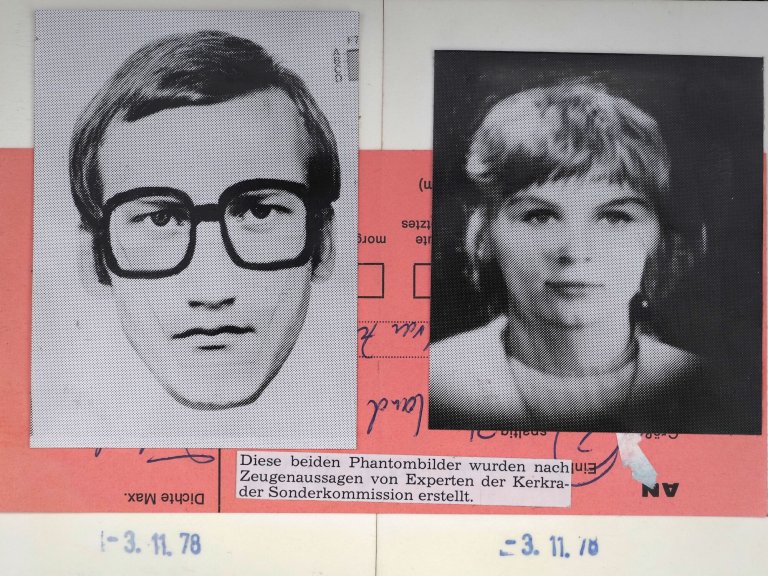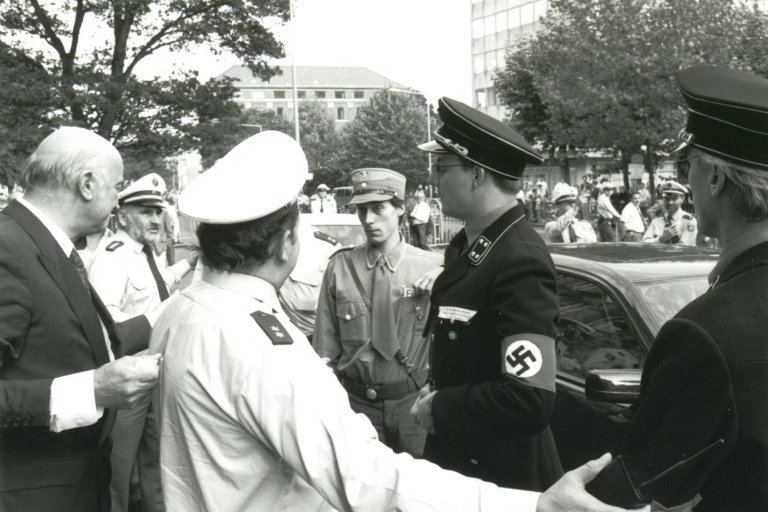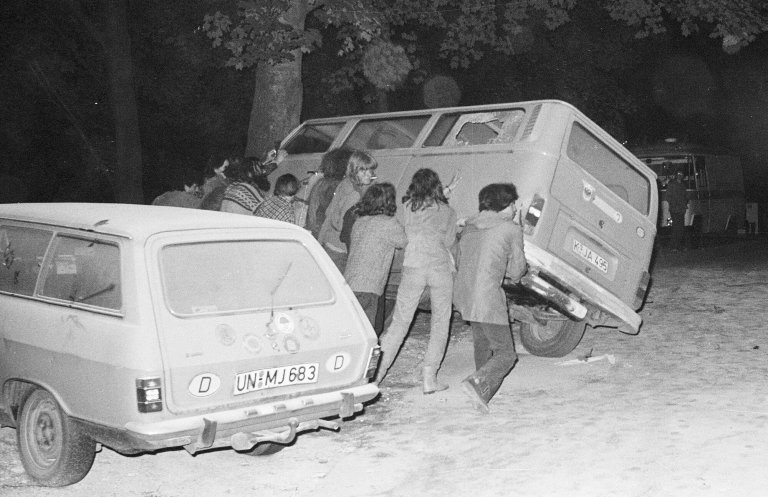Tatort Heimat! True crime from the region
Opening of the temporary exhibition
09.11.2024 - 27.04.2025 | Opening: Fri 08.11., 19.00 hrs
The exhibition "Tatort Heimat! True Crime from the Region", which will be opened on 8 November in the presence of Lord Mayor Sibylle Keupen, the President of Aachen Regional Court,
Dr. Ulrich Thole, Senior Public Prosecutor Heike Fuchs and Andreas Bollenbach, former Chief of Police, will provide information about the major challenges in the field of crime that the police, the justice system and the media face on a daily basis with around 250 exhibits and exciting podcasts. Thirty criminal cases that have burned themselves into the collective memory will be highlighted. "We want to show what is behind the cases," emphasizes curator Myriam Kroll. "In doing so, we are building a bridge from some very well-known events to the present day with the very topical subject of cybercrime."
An old police beetle and a complete cell including the original furnishings from Aachen Prison await visitors. Numerous items on loan relating to police work, including a forensics case, from the prison and even from forensic pathology, complement the vivid displays. Cultural operations manager Olaf Müller is impressed: "As the son of a police officer, I have a special relationship with the subject matter. I find the way in which the exhibition also gives a detailed voice to those who contribute to the investigation of criminal cases and the administration of justice more than respectable."
And Dr. Frank Pohle, head of the Route Charlemagne, adds: "The new exhibition is a reach into everyday history - albeit of the sinister kind. As a museum of urban history, we want to make our contribution to the general knowledge of what has happened in the region over the past decades and centuries."
A lot has happened, as just a few true crime stories show: Coffee smuggling, for example, famously flourished in the Aachen region after the Second World War. Well-organized gangs brought the coveted beans across the Belgian-German border by the ton. The so-called coffee barons sometimes transported the hot goods in armored vehicles in order to better defend themselves against the customs officers. The illegal import caused the Federal Republic of Germany to incur tax losses in the millions.
On January 18, 1968, the main proceedings against the pharmaceutical company Grünenthal were opened before the First Grand Criminal Chamber of the Aachen Regional Court for intentional and negligent bodily harm, involuntary manslaughter and serious violation of the German Medicines Act. The thalidomide scandal continues to occupy and move many people around the world to this day.
On All Saints' Day 1978, two members of the RAF attempted to escape across the border near Herzogenrath into the Netherlands. Two Dutch customs officers who wanted to check their passports were shot by them, another was injured.
On December 20, 1999, a lone perpetrator took three people hostage and barricaded himself in the Landeszentralbank near Aachen's main train station for more than 50 hours. The area was cordoned off on a large scale. Residents were no longer able to enter their homes. Train services were temporarily suspended and a state of emergency prevailed. The tense situation was only ended after three days by a "final rescue shot".
The cases from the Aachen area are examined for their particularities in terms of legislation, police work and punishment. As strange as it may sound, the history of crime is also cultural history and social history. Crime is a phenomenon that society has to confront time and again. In times when social consensus seems to be declining, the exhibition project aims to provide a forum for discussing the meaning and benefits of state
control and regulatory structures, explaining the work of the police and courts and shedding light on the role of the media.
In the exhibition, representatives from the police, the public prosecutor's office, the judiciary, forensic medicine, the prison system and the press have their say and talk about their everyday lives. A large number of exhibits provide an insight into how methods of investigation and punishment have changed over time and what challenges need to be overcome in the future.
Podcast
The exhibition is accompanied by the podcast "Tatort Heimat! True Crime from the region" and can be accessed via the usual podcast portals and the website www.tatortheimat.de
Guided tours of the exhibition
Public guided tours
every Sunday at 3 p.m.
Meeting point: museum ticket office / museum admission plus 2.00 euros
Guided tours for senior citizens
on 05.12.2024 / 07.02.2025 / 03.04.2025
at 11.00 a.m.
Meeting point: museum ticket office / museum admission plus 2.00 euros
Individual guided tours
can be booked with the Aachen Museum Service
Service times: Tue, Thu, Fri 09.00 - 14.00,
Wed 09.00 - 12.00 and 14.00 - 17.00
Tel.: +49 241 432-4998
museumsdienst@mail.aachen.de
You can subscribe to our RSS feed for our press releases here https://www.aachen.de/rss-feed-pressemitteilungen/rss.xml



